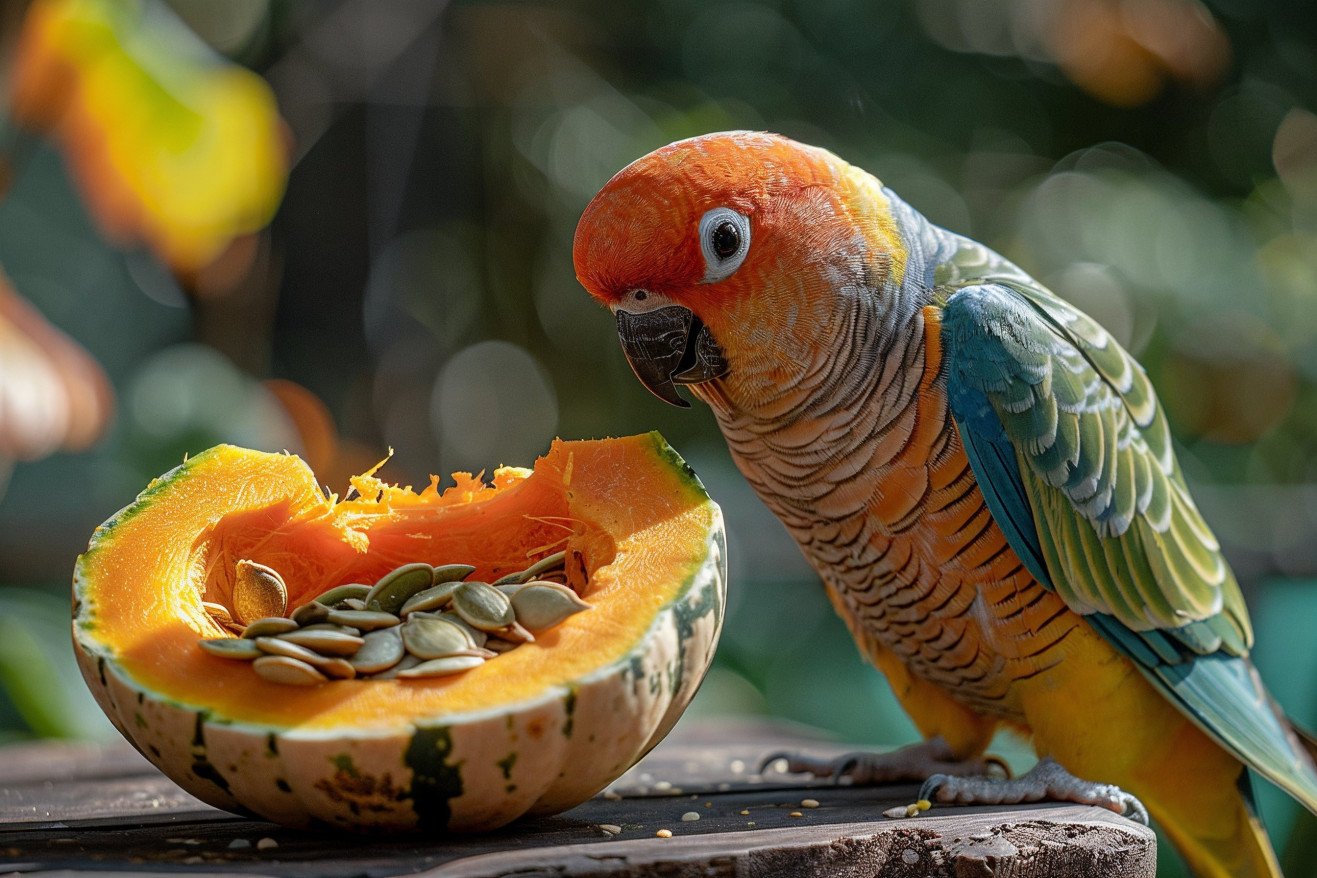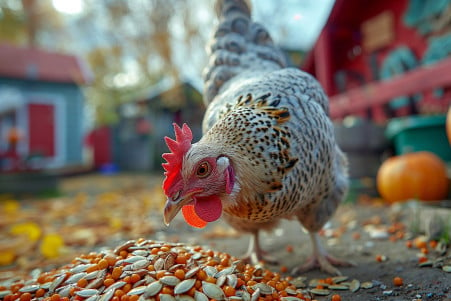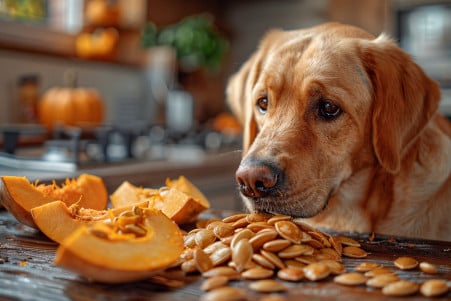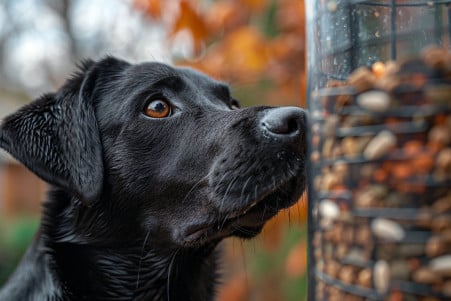Do Birds Eat Pumpkin Seeds? The Science Behind It
23 May 2024 • Updated 22 May 2024

Whether you're feeding wild birds in your backyard or taking care of pet birds, you may be wondering if you can give them pumpkin seeds. Are they a healthy treat, or could they be bad for your birds? Pumpkin seeds are safe for birds to eat in moderation. They are a good source of calories, protein, and nutrients like zinc and antioxidants. However, because they are high in fat, they should be a small part of a bird's diet.
In this article, we'll look at studies on bird nutrition and advice from experts to find out what the research says about the benefits and drawbacks of feeding pumpkin seeds to different types of birds. This evidence-based information will help you determine if and how you should feed pumpkin seeds to your birds so that you can make sure they are getting the nutrition they need.
Can birds eat pumpkin seeds?
How to Prepare and Offer Pumpkin Seeds to Birds
Preparing pumpkin seeds for birds is easy and can result in a healthy snack for your backyard visitors. First, separate the seeds from the pumpkin pulp and air dry or roast them without added salt or seasoning. Air drying can be accomplished by laying the seeds out on a baking sheet, while roasting at about 300°F for 45 minutes will make the seeds crunchy, as suggested by Eating Bird Food.
Whole pumpkin seeds can be offered to larger birds like cardinals and blue jays in tray or hopper feeders, as their powerful beaks can easily open the shells. However, smaller birds may have difficulty with whole seeds, so hulling or lightly crushing the seeds can make them more accessible.
Pumpkin seeds can be offered on their own as a special treat or mixed with other bird seed to ensure a well-rounded diet. Another option is to create a natural bird feeder from a hollowed-out pumpkin, filling it with the dried seeds for a fun, seasonal display. No matter how you prepare them, offering pumpkin seeds in moderation can be a healthy way to attract a variety of birds to your backyard.
Birds That Eat Pumpkin Seeds
Larger seed-eating birds like cardinals, blue jays, and grosbeaks are especially likely to eat pumpkin seeds because they have the strong beaks necessary to crack the shells. The AFA Watchbird publication explains that pumpkin and pumpkin seeds are a great bird food, as they are packed with vitamins, minerals, and other essential nutrients.
Smaller birds may have difficulty eating whole pumpkin seeds, but they can eat hulled or crushed seeds, as suggested by the Wausau Daily Herald. Meanwhile, some parrots, such as eclectus parrots, can eat pumpkin seeds as a supplement, according to the Avian Avenue Parrot Forum.
Conversely, birds that eat primarily insects, fruit, or nectar are unlikely to eat pumpkin seeds. Birds and Blooms suggests that you offer a variety of seeds to attract a wide range of birds to your backyard.
Proper Serving Sizes and Feeding Schedule
Pumpkin seeds should be given to birds in moderation, as a treat in addition to other foods rather than a main source of nutrition. The Wilco Farm Stores explains that birds, squirrels, and other animals enjoy pumpkin seeds, but they should be part of a well-rounded diet. For most birds, pumpkin seeds should be no more than 10% of their daily diet, as suggested by the label on the All Living Things® Pumpkin Seed Bird Treat.
Larger birds like parrots may be able to eat more pumpkin seeds than smaller songbirds. The Northern Parrots blog explains that pumpkin seeds can be a nutritious addition to a parrot's diet, but they should not be the main food. When adding pumpkin seeds to a parrot's diet, it's important to start slowly and watch for signs of an allergic reaction or other issues.
In the end, it's important to make sure that backyard birds have a well-rounded diet that includes a variety of different foods. By offering pumpkin seeds in addition to other seeds and foods, you can make sure that birds get the nutrients and energy they need.
Nutritional Value of Pumpkin Seeds for Birds
Pumpkin seeds are full of protein, healthy fats, fiber, and a variety of vitamins and minerals that can be very nutritious for birds. Per Healthline, a 1-ounce serving of pumpkin seeds contains 8.6 grams of protein, 14 grams of fat, and a good amount of important nutrients like manganese, copper, magnesium, phosphorus, zinc, and iron.
These vitamins and minerals can be helpful for feather development, reproductive health, and general energy in birds. Birds Maven explains that the nutrients in pumpkin seeds are important for the overall health and energy of wild birds, especially during times of the year when they are breeding or migrating.
By eating pumpkin seeds, birds can make sure they are getting the nutrients they need to stay healthy. As the Kaytee article on wild bird nutrition points out, birds will often change their diets seasonally to ensure they are getting the nutrients they need, so pumpkin seeds can be a good way to ensure they are getting everything they need.
Potential Dangers and How to Practice Safe Feeding
According to PetEveryday, whole pumpkin seeds can be a choking hazard, especially for smaller birds. Some birds may also have allergic reactions or digestive upset when they first start eating pumpkin seeds, so it’s important to watch your birds closely when you first introduce them to this new food.
In addition, pumpkin seeds are high in fat and calories, which can contribute to obesity if they are over-consumed, according to PetEveryday. And despite some claims to the contrary, there is no scientific evidence that pumpkin seeds are an effective dewormer for birds, according to The Chicken Chick.
In the end, it’s important to feed pumpkin seeds in moderation and watch your birds closely for any signs of distress. If you do this and follow the advice of experts, you should be able to feed your birds this healthy treat without any problems.
Conclusion: How to Add Pumpkin Seeds to a Healthy Bird Diet
When fed in moderation, pumpkin seeds can be a healthy and nutritious treat for many bird species. They provide essential nutrients and can be a valuable supplemental food source, especially during demanding seasons. However, proper preparation and portion control are important to ensure that pumpkin seeds are safe and beneficial for birds.
In addition, pumpkin seeds should be part of a varied diet that includes other healthy foods and seeds. By following these tips, bird owners can safely and responsibly add pumpkin seeds to their birds' diets.


